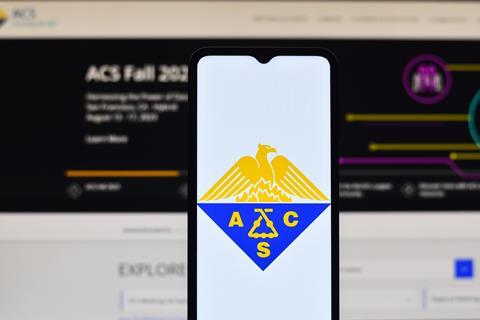
The American Chemical Society (ACS) has launched a new one-year funding initiative to provide $2.5 million (£1.85 million) to support 100 master’s and doctoral chemistry students whose work has been disrupted by the cancellation of their adviser’s grants.
‘These will go to MS and PhD students within one year of their degree completion who are at risk of not finishing because of some termination or cancellation of their research,’ announced Wayne Jones, who chairs the ACS board of directors, at the opening session of the ACS Fall conference in Washington DC. ‘This will be up to 100 grants total,’ he said. ‘We want to protect the future of our US-based scientific workforce.’
For now, it is a one-time programme but the board is discussing the possibility of continuing it beyond that and opening it to more than graduate students, including to those pursuing undergraduate degrees in the chemical sciences, according to Jones, a chemist at the University of New Hampshire.
Applications for this new ACS initiative, dubbed the Graduate Student Success Grant, will open on 15 September and close on 1 October. ‘Yes, we know it’s a short window, but let’s get the information out,’ Jones stated at the opening of the meeting.
Jones asserted that ‘in these dynamic times, ACS remains steadfast in its commitment to advocate for science and scientists’, noting that more than 2600 letters have been sent to members of Congress by five different ACS letter-writing campaigns since March. Among other things, these communications cautioned against budget cuts to US science agencies proposed by the Trump administration and advocated for the continued funding of the Chemical Safety Board, which has been threatened with closure by the Trump administration.
He encouraged ACS members to consider joining the Act4chemistry legislative action network, which is the organisation’s grassroots effort to share their stories and help communicate to legislators how federal funding disruptions have disrupted the work of chemists.
’Many faculty have recently been informed that research grants they were awarded were terminated,’ explains Kelly Elkins, a chemistry and forensic science researcher at Towson University in Maryland. ’These grants fund not only instruments and consumables to do their work but also salaries for their lab staff and stipends for graduate students who are conducting research with them in their labs in partial fulfillment of their graduate degrees. The sudden loss of financial support has created uncertainty for many people including students, especially those relying on this funding to support their living expenses while they finish their degrees. Students are questioning if they can finish their degrees as planned or if they will need to take on part-time or full-time jobs, extend their time to degree, or take out loans. Faculty have been searching for alternate funding to fill the void and support their students in reaching their goals. The announcement by ACS that the society has allocated $2.5 million dollars to support up to 100 graduate students in their terminal year of their Masters or PhD degrees will provide much needed relief to the mentors and mentees alike in navigating the changing funding landscape.’
Sunsetting the Scholars Program
During the opening session of the ACS meeting, Jones also addressed the organisation’s decision in May to discontinue its Scholars Program, which for decades awarded scholarships to undergraduates from historically underrepresented groups studying the chemical sciences, amid significant legal and political pressure. This programme had been in operation since the early 1990s and the board had begun discussing how it could be evolved last summer, Jones said. ‘We were talking about how we can evolve it and make it bigger, more impactful and broader for the society, so we were already moving in that direction,’ he stated. For example, he pointed out that ACS’s Bridge Program and SEED Program had already evolved broader language.
‘We did receive a lawsuit that called out some specific language that was in that scholarship programme that we had already evolved away from,’ Jones continued. ‘Unfortunately, the lawsuit got involved, and so we had to move a little bit more quickly and we had to terminate the name, but the programme is going to continue – it’s going to be bigger, it’s going to be broader.’
He emphasised that inclusion and belonging are ‘core’ to the ACS mission. ‘We want to make sure that ACS is here for everyone, regardless of where you come from, and we have to create opportunities for everyone where they are,’ he stated. ‘That’s what this programme is going to be all about.’
Update: Kelly Elkins comment was updated on 20 August 2025





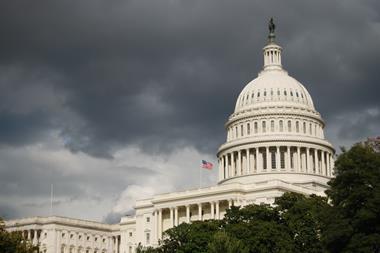

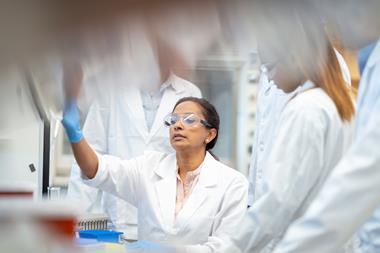

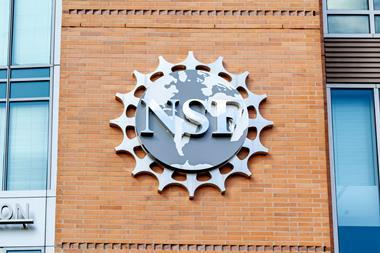
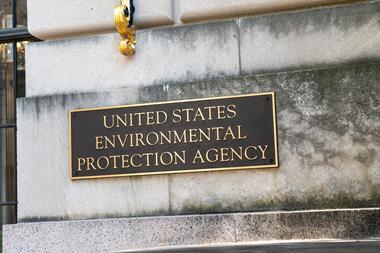






No comments yet